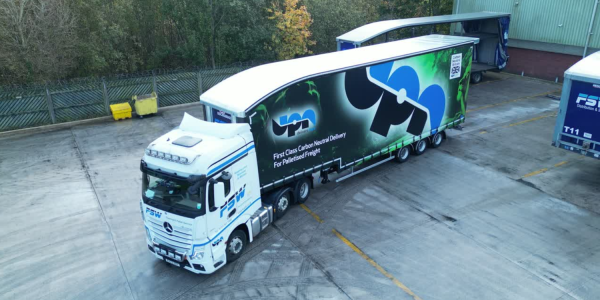Buying your first van can be an exciting time, but it’s easy to make financial mistakes that can cost you later if you’re not careful. Whether you’re using it for work or personal needs, rushing into a purchase without proper research or planning could leave you stuck with unexpected expenses.
Mistakes like choosing the wrong financing option, underestimating running costs, or failing to check the van’s condition can quickly add up. So here’s a friendly guide to help you avoid these common mistakes so you can get the most out of your investment.

Source: Unsplash (CC0)
Not setting a clear budget
One of the biggest mistakes when buying a van is not starting with a clear and realistic budget. It’s tempting to go for something larger, flashier, or newer, but overspending could leave you struggling to keep up with payments. Always include all the costs you’ll face, like insurance, fuel, maintenance, and any necessary repairs.
Think about what you actually need. For example, if you’re buying a used van for work, prioritize durability over extra features that increase the price. Sticking to a budget that fits your needs will help you avoid financial stress down the line.
Choosing the wrong financing option
Many people don’t realize how much the financing method can affect the total cost of a van. Hire purchase agreements, for instance, are popular but can be risky if you don’t fully understand the terms. These agreements often require high-interest payments over several years, meaning you could pay much more than the van’s value by the time you finish.
If you feel pressured into a hire purchase or don’t fully understand the contract, it’s a good idea to get legal advice. You may even be entitled to things like HP refunds if the terms were unfair or misrepresented. Always compare financing options, and if possible, save up for a larger deposit to reduce monthly costs.
Skipping a thorough inspection
Rushing into a purchase without properly checking the van’s condition is another costly mistake. When buying a used van, it’s especially important to inspect it for mechanical issues or hidden damage. A shiny exterior might look great, but it doesn’t guarantee that everything is working as it should.
If you’re not confident in spotting problems, consider hiring a mechanic to inspect the van before you buy it. Spending a little upfront for peace of mind is much better than discovering expensive issues later. Always check the service history, mileage, and any signs that it hasn’t been well-maintained.
Underestimating running costs
It’s easy to focus on the sticker price and forget about the ongoing expenses that come with owning a van. Fuel costs, insurance premiums, regular servicing, and even parking fees can quickly add up. If you don’t plan for these costs, you could find yourself stretched too thin financially.
Be honest about your needs. For example, if you plan to use the van for long trips, fuel efficiency should be a priority. It’s better to pay slightly more for a reliable van upfront than to deal with constant breakdowns or high running costs later.
Ignoring the importance of warranties
Another mistake that buyers often make is not checking for a warranty. A warranty can protect you against unexpected repairs and give you peace of mind. Without one, you could end up paying for costly fixes that should have been covered.
When buying a used van, ask the seller if there’s any remaining manufacturer’s warranty or if they can provide one themselves. If not, consider purchasing an extended warranty from a reputable provider. It’s an added cost, but it could save you thousands in the long run.
Forgetting to negotiate
One mistake that many people make is assuming the price on the van is non-negotiable. Sellers, especially in private sales or dealerships, often expect buyers to haggle. If you don’t try, you might pay more than necessary.
Research the van’s market value so you know what’s fair before you negotiate. Highlight any issues with the vehicle or expenses you’ll need to cover, like repairs or upgrades, to make your case.
Overlooking legal protections
Financial mistakes sometimes happen because buyers don’t know their legal rights. If you’ve been misled by a seller or pressured into a bad deal, you may have the option to take legal action. This is particularly true with hire purchase agreements or vehicles sold in poor condition.
Try to always keep records of your purchase, including receipts, contracts, and communication with the seller. If something goes wrong, these documents can help you prove your case and seek a resolution.


